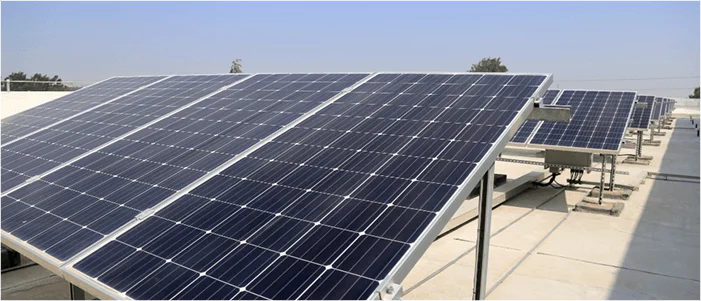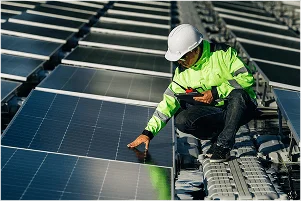15 August, 2025
In today’s business environment, energy costs are no longer just another line item - they can be the difference between growth and stagnation. Reliable power is the backbone of every modern enterprise, from manufacturing plants to office complexes. Yet, many businesses face rising electricity bills, unstable supply, and the financial drain of running diesel generators. This is why more organizations are asking: Is commercial solar right for us? Let’s break it down.
Understanding Your Energy Consumption
The first step to answering this question is to look at your energy profile. How much electricity does your business consume monthly? What’s the split between grid supply, diesel use, and other backup sources? Beyond the numbers on the electricity bill, consider the hidden costs of power interruptions – production downtime, equipment damage, lost man-hours, and delayed deliveries.
When energy is unreliable, businesses pay twice: once for the official bill and again for the inefficiencies caused by poor supply.
Why Solar Power Stands Out
Commercial solar systems provide a clean, reliable, and predictable source of electricity. Unlike fossil fuels, sunlight is abundant and free. Once installed, a well-designed solar system locks in lower electricity costs for 20 – 25 years.
For businesses, this means:
- Energy independence: Reduced reliance on the grid and diesel generators.
- Predictable costs: Solar disconnects you from unpredictable fuel price hikes.
- Scalability: Systems can be expanded as your energy needs grow.
When paired with battery storage, solar ensures round-the-clock power, bridging gaps during evenings or cloudy days.

Cost Comparison: Solar vs. Diesel vs. Grid
One of the biggest drivers for commercial solar adoption is cost.
Consider this:
- Running a diesel generator can cost several times more per kilowatt-hour than solar, once fuel, maintenance, and repairs are factored in.
- Grid tariffs fluctuate and often rise without warning, impacting budgets.
- Solar, by contrast, offers a flat, predictable cost curve once the system is installed.
The upfront investment may seem high, but the payback period is typically between 3–6 years, after which solar becomes a source of pure savings.
Benefits Beyond Savings
Switching to commercial solar is not only about reducing bills. Businesses also benefit from:
- Operational continuity: No more disruptions due to fuel shortages or power cuts.
- Sustainability branding: Customers and investors increasingly prefer companies that prioritize green energy.
- Asset value: Solar-equipped facilities often enjoy higher property valuations.
- Compliance: Many industries face rising pressure to meet environmental standards; solar is a direct step toward compliance.
Is Solar Right for Your Business?
Not every business will adopt solar in the same way. A quick checklist can help:
- Do you have a roof or land space suitable for solar panels?
- Are your electricity bills consistently high?
- Do you operate mainly during the day when the sun is strongest?
- Are you looking for long-term savings rather than short-term fixes?
If the answer to most of these is yes, then solar is worth serious consideration.

